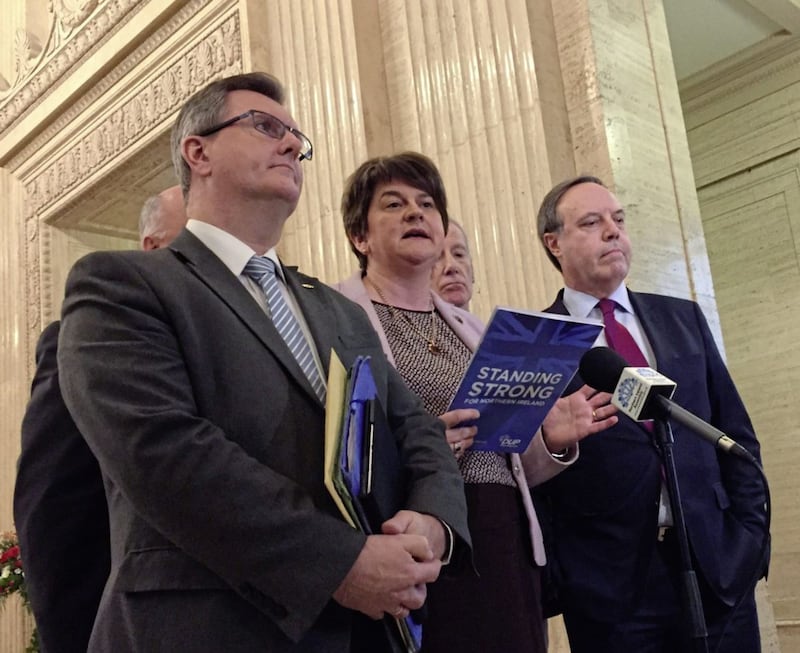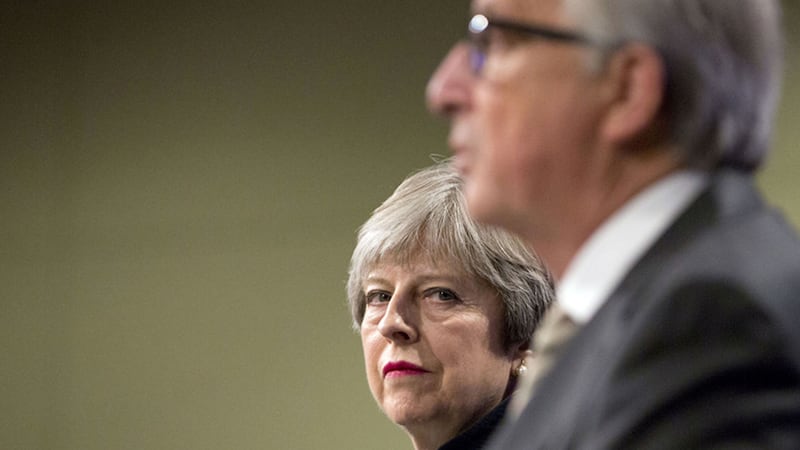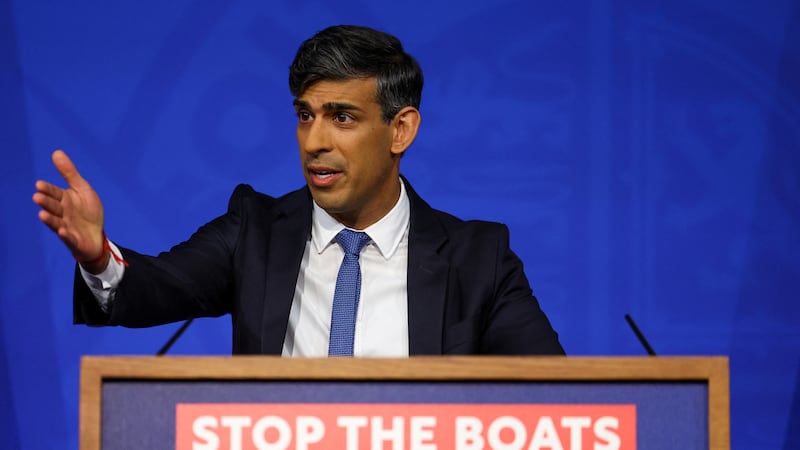BREXIT pressure intensified on Theresa May this morning after a deal to secure a special arrangement for Northern Ireland after Britain exits the EU was scuppered by a last-minute intervention from the DUP.
The unionist party, who are propping up the Tory government under a "confidence and supply" arrangement agreed earlier this year, refused to accept proposals which would have shifted Northern Ireland's customs border to the Irish Sea.
Today Ms May is briefing Cabinet colleagues on the race against the clock to find the key to break deadlock in Brexit talks on the border and other issues.
The British prime minister plans to return to Brussels before the end of the week, with time running out to persuade leaders of the remaining 27 EU nations at a summit on December 14-15 that "sufficient progress" has been made on divorce issues to move Brexit negotiations on to their second phase concentrating on trade.
The PM was expected to speak by phone with DUP leader Arlene Foster as Mrs May grappled to find a form of words acceptable to the Northern Irish party, on which she relies to prop up her minority administration at Westminster.
Chancellor Philip Hammond struck an upbeat note, insisting he was "very confident" that the British government would be able to make progress over the coming days.
Speaking to reporters as he arrived for a scheduled meeting of EU finance ministers in Brussels, Mr Hammond said: "This is a very complex set of negotiations. There are many moving parts in it, there are many parties involved.
"We are very confident that we will be able to move this forward. Discussions are going on right now and will go on throughout the day."
He added: "We have made a lot of progress over the last weeks. We have made tremendous steps forward. We are very close, but we are not there yet.

"As the prime minister said yesterday, we will have to do some further consultations, further discussions, today and she expects to come back to Brussels later in the week."
After yesterday's dramatic developments, Ms May and European Commission president Jean-Claude Juncker said they would continue to talk with the aim of reaching agreement on the border issue by the end of the week.
However, the last-minute change of mind by Britain left Taoiseach Leo Varadkar "surprised and disappointed" and led to pessimism in some quarters.
The Fine Gael leader said a form of words had been agreed by all sides before Mrs May "asked for more time".
Earlier, a leaked text of the proposed deal between the EU and UK suggested the British government had accepted that the north would maintain 'regulatory alignment' with the Republic, allowing the continuation of a soft border.
This produced a swift response from the DUP, with leader Arlene Foster insisting her party - which is propping up the Tory administration - would not allow a border at the Irish Sea.
“We will not accept any form of regulatory divergence which separates Northern Ireland economically or politically from the rest of the UK," she said.
In echoes of the unionist response to the Anglo-Irish Agreement in 1985, Mrs Foster said her party would not accept changes to the status of Northern Ireland “without our input or consent”.
It was unclear last night if the British government had sought approval from the DUP before reaching agreement with the EU, but it is understood that Mrs May took a break from her meeting with Mr Junker to speak by phone to Mrs Foster.
A planned press conference in Dublin by Taoiseach Leo Vardakar was then postponed and Mr Junker and Mrs May made brief statements saying they had achieved progress but further consultation was required.
Speaking later, Mr Varadkar insisted Brexit negotiations cannot move forward without firm guarantees on the border.
Asked about the DUP, he said while it was important to listen to the party they "don't represent the majority of people in Northern Ireland" and the region had voted to remain in the EU.
The collapse of the deal sparked criticism of Mrs May from rival parties at Westminster, while leaders of the devolved administrations in Scotland, Wales and London called for a similar deal to Northern Ireland.








